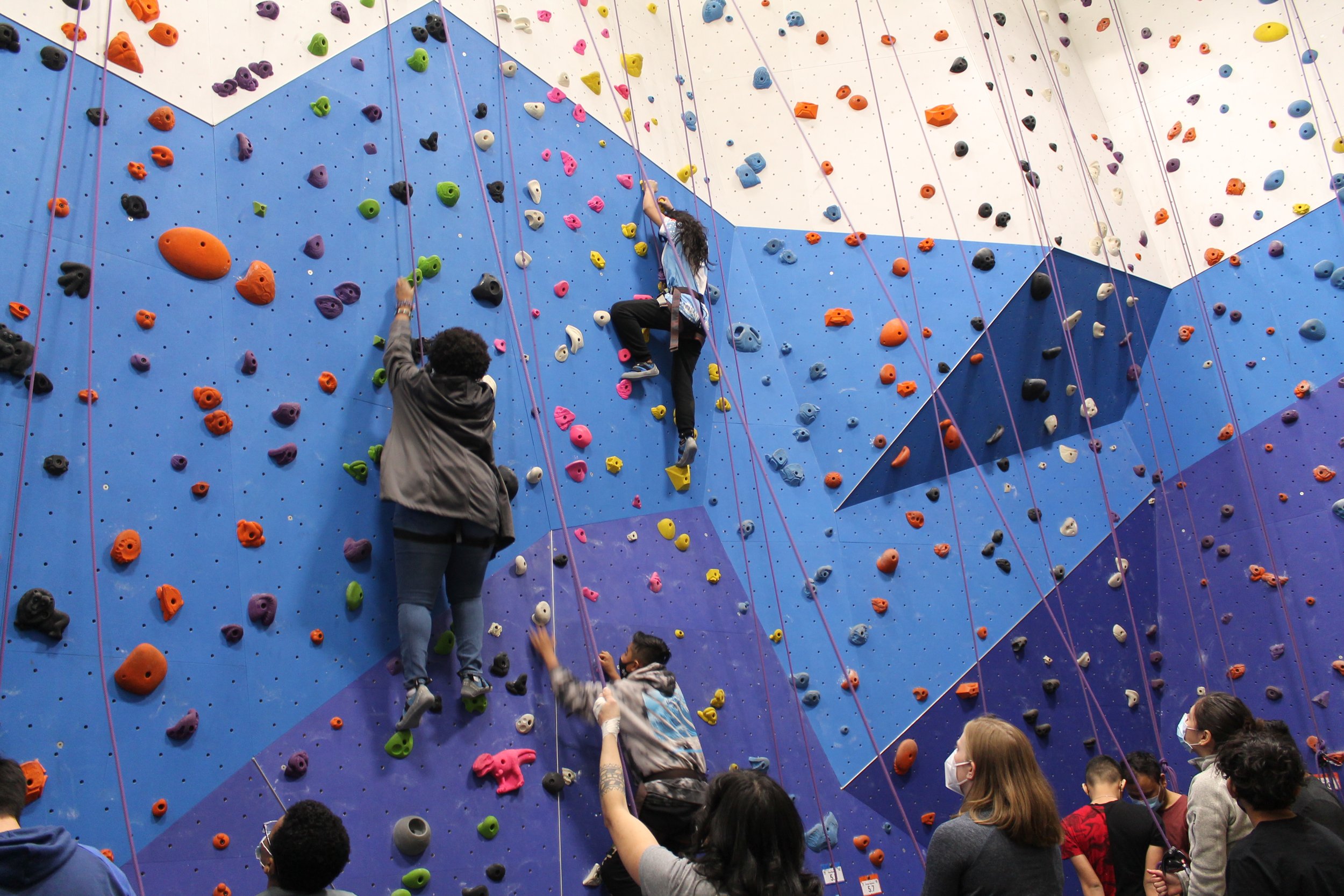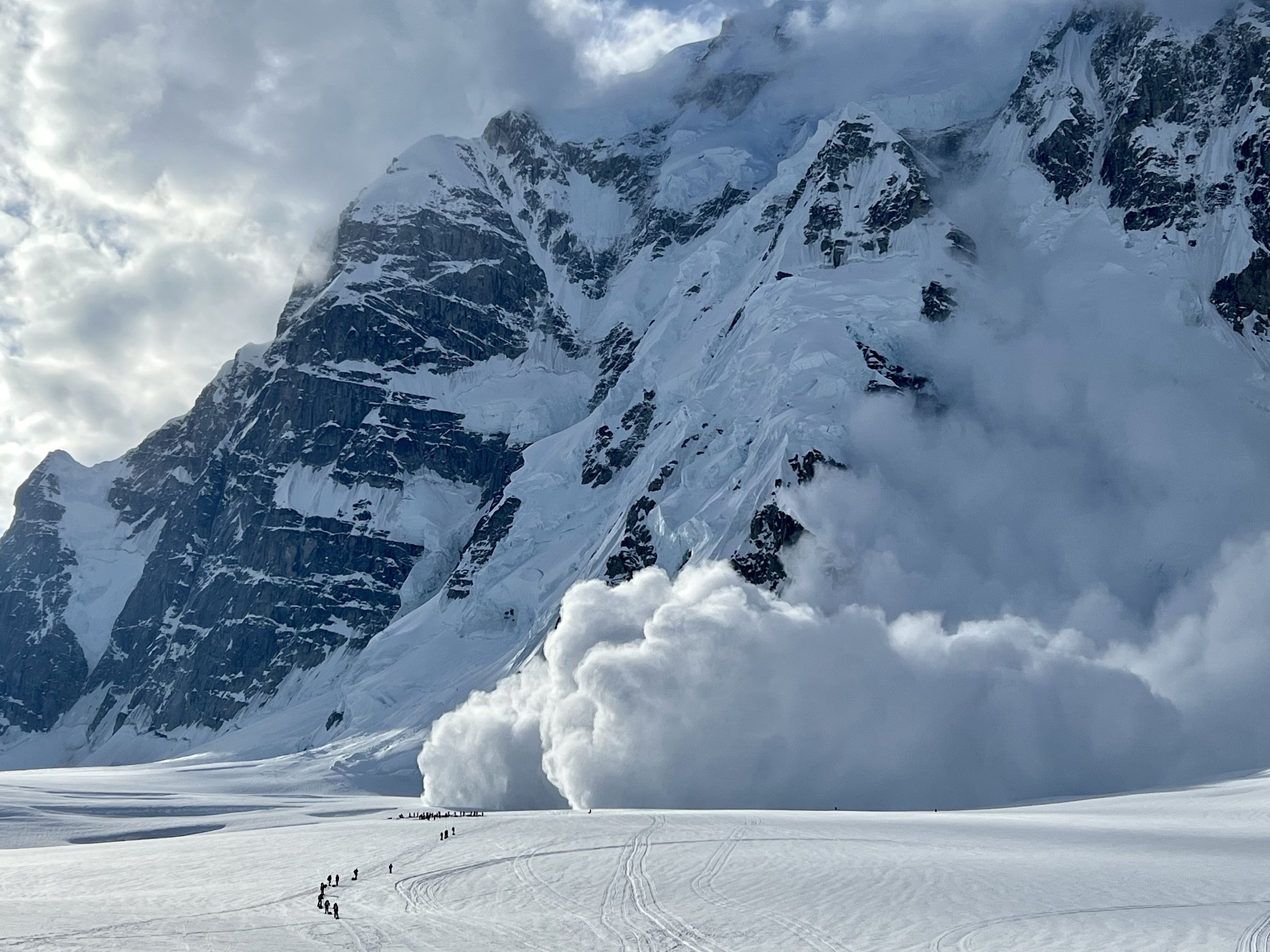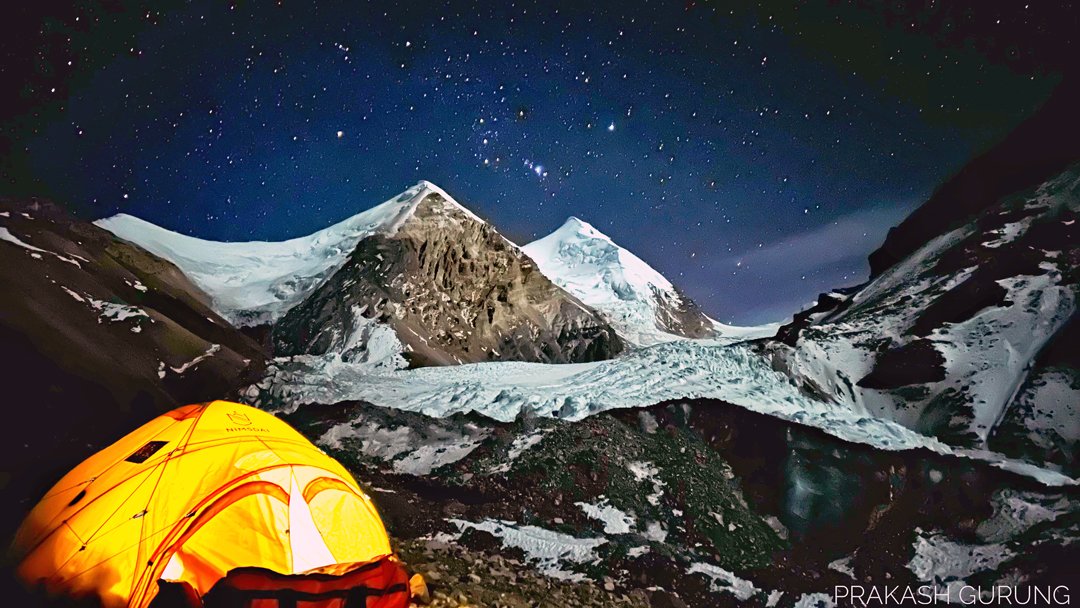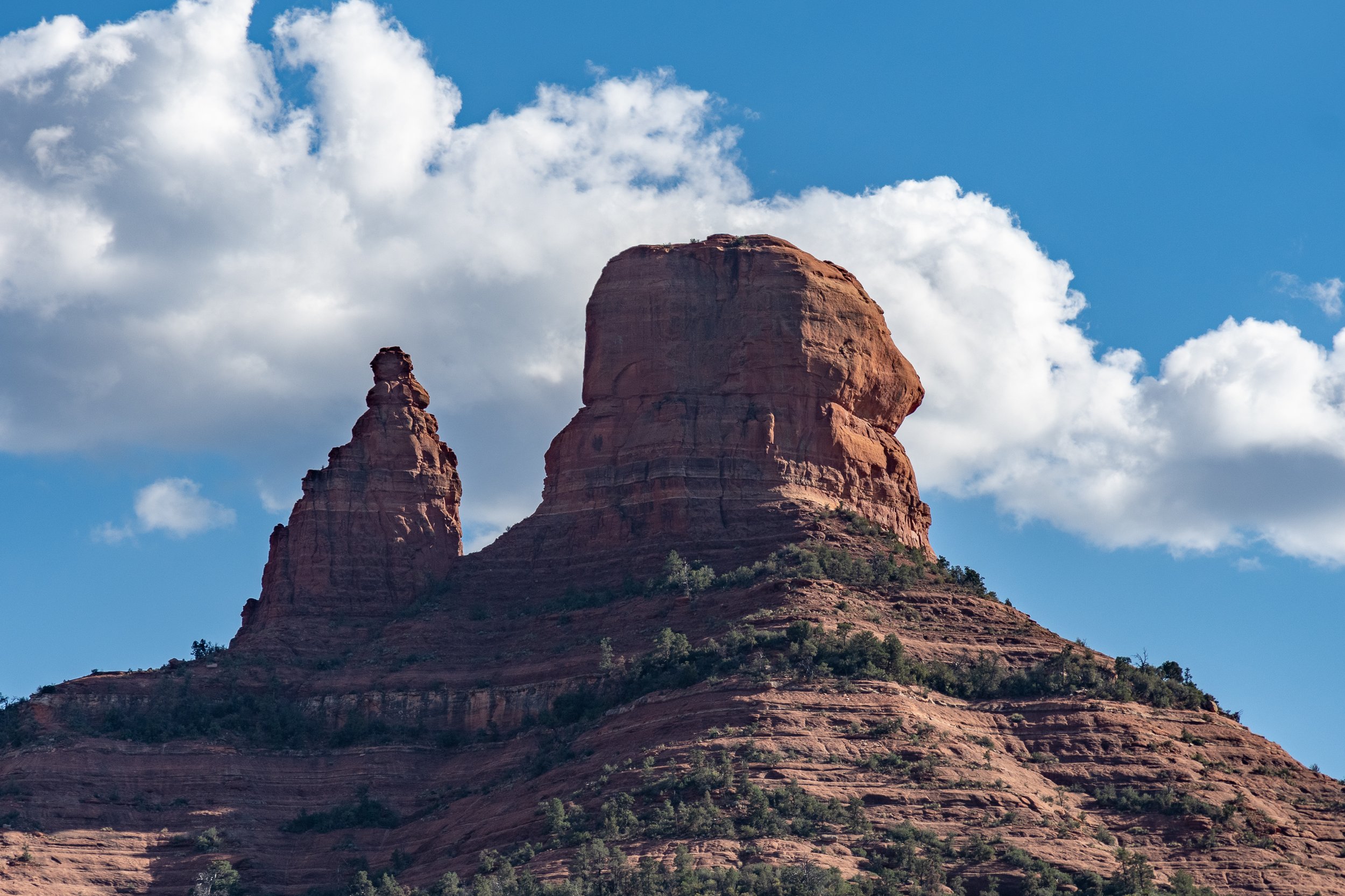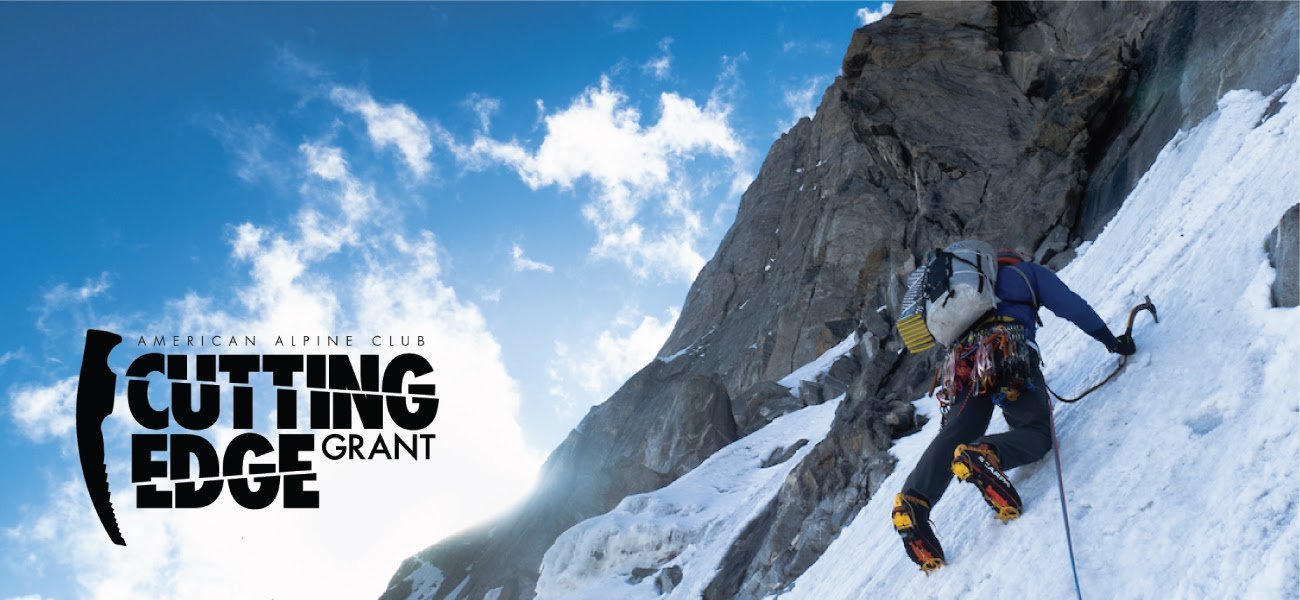The AAC DC Chapter takes Wilderness Kids Alexandria climbing
PC: Elizabeth Waugh
Grassroots: A storytelling series about cutting edge projects and conversations in the AAC community.
By Sierra McGivney
All Melissa Rojas knew about rock climbing was kids' birthday parties. But once she started climbing, pulling herself up multicolored plastic holds with her long-time climber friend, her mind was free. The stress of working in healthcare melted away. Each move she made was related to each other, connected to the whole route, like piecing together a puzzle.
“I just got hooked,” says Rojas, the Communications Co-Chair for the AAC D.C. Chapter.
Climbing engrossed Rojas. She wanted to get involved and give back, so she looked into climbing organizations and found the American Alpine Club.
PC: Elizabeth Waugh
As Rojas got more engaged in the climbing community, she noticed a sizable amount of Spanish-speaking climbers in the area and saw an opportunity for community. In June of 2021, Rojas founded ¡Escala DC!, a Spanish-speaking climbing club.
Although not all spanish-speakers are people of color, differences in language, and the culture embedded in language, can be a barrier to feeling fully understood and represented in a community. And when language and racial identity overlap, it can be even harder to see yourself represented.
“If you're not white, it can feel very intimidating going into a gym.” says Rojas, “It's not like anybody's doing anything to make you feel intimidated, you just feel intimidated.”
Members of ¡Escala DC! feel grateful to have found a group that speaks to them. The club organizes weekly meetups at gyms in the area like Crystal City, Timonium, and Rockville. Rojas has created a space that unites climbers whose identities come from a Spanish-speaking background.
PC: Elizabeth Waugh
Although spanish-speakers in the US come from a wide range of countries and cultures, there is no denying the way language can bind you together. “It's a different experience when you climb with folks that have the same cultural context,” says Rojas.
Jerry Casagrande didn’t grow up in a particularly outdoorsy family. He never went hiking or camping. When he was 15 years old his science teacher suggested he look into a summer program that would take him to the Grand Tetons in Wyoming, the Bear Creek Mountains in Montana, and Yellowstone. The grand mountains and forests of the West left a lasting mark on Casagrande.
“It just changed my life completely,” says Casagrande.
PC: Elizabeth Waugh
In a number of ways, Casagrande has sought to pay that experience forward. He ran a program about 20 years ago that took kids from all over the country to experience the outdoors. In Alexandria, Casagrande’s home, he noticed that there was an imbalance between kids who had access to green spaces and those who did not. In October of 2021, Casagrande founded Wilderness Kids Alexandria.
WKA believes there are a multitude of benefits to being outside. The mission of the nonprofit organization is to provide life-enriching experiences in nature to teenagers from under-resourced families in Alexandria, Virginia.
Latino Outdoors is a “volunteer-driven organization that focuses on expanding and amplifying the Latinx experience in the outdoors.” Casagrande posted on the Latino Outdoors DMV—D.C., Maryland, and Virginia—Facebook page looking for volunteers to take kids climbing. A number of people are also a part of the AAC D.C. section. He got an overwhelming response.
PC: Elizabeth Waugh
“We had more volunteers than we could use,” says Casagrande.
Members from the AAC D.C. section, ¡Escala DC!, and the Potomac Mountain Club volunteered to belay kids and teach climbing basics on February 19, 2022, at Movement Climbing gym.
After a picnic, kids headed to Movement to get fitted for climbing shoes and harnesses. Many looked up at the rainbow of holds that create routes and said, “I can’t do that.” By the end of the day, participants were practically racing up the wall.
English is not a first language for a majority of the kids who attended. The volunteers were able to speak to kids in their native language. This enabled the kids to easily communicate on the climbing wall and meet passionate climbers who spoke the same language as them. Seeing themselves reflected in this space helped to cultivate a sense of self within the climbing community.
“It was super cool to be able to talk to them in their mother language and have them feel reassured,” says Rojas.
PC: Elizabeth Waugh
The AAC, along with PATC took kids climbing at Caderock on Apr 23, 2022. WKA was hoping to get 20 kids in attendance. Ten kids climbed while the other 10 kids went hiking. Mid-day they switched. Volunteers set up topropes and taught kids climbing basics.
Rojas believes fostering and establishing strong cultural diversity and ability diversity in the climbing community is the keys to true accessibility. It’s a team effort to establish a space accessible to all. Multiple organizations came together to nourish a love of climbing in kids who otherwise might not have the opportunity.
“We're a really small organization and [the AAC] enables us to have a bigger impact than we could otherwise possibly have,” says Casagrande.


